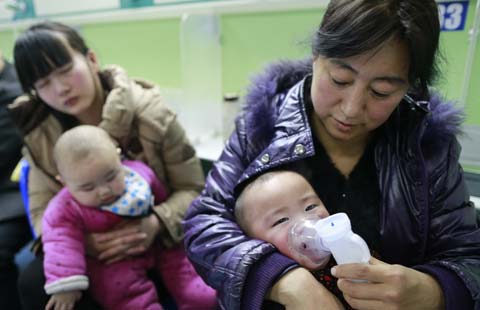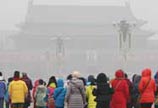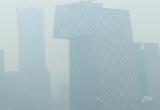

Fifty-six mines have been shut down in north China's Hebei Province, which holds the country's smoggiest cities.
The number of people in Beijing wishing to buy new-energy vehicles has incresed 20 percent.
Central China's Hubei province Wednesday launched a carbon trading scheme, the country's sixth.
For Meng Lanzhi, founder of Hebei Tianzhu Iron and Steel (Group) Co. Ltd., smog is not just a health risk. It's also bad for business.
 Authorities in Guangzhou are planning to introduce state-of-the-art technology to upgrade coal-fired power plants and industrial boilers as part of major efforts to tackle air pollution.
Authorities in Guangzhou are planning to introduce state-of-the-art technology to upgrade coal-fired power plants and industrial boilers as part of major efforts to tackle air pollution.
 147 industrial companies in Beijing have cut or suspended production as of Tuesday as part of the city's measures to reduce pollution emissions.
147 industrial companies in Beijing have cut or suspended production as of Tuesday as part of the city's measures to reduce pollution emissions.
 China will look into establishing a nation-wide trading system for pollution permits as part of efforts to use market mechanisms to help clean up its environment.
China will look into establishing a nation-wide trading system for pollution permits as part of efforts to use market mechanisms to help clean up its environment.
Companies' violations of environmental laws and regulations have become shrewder over the past 10 years, a senior official with the Environmental Protection Ministry said. Special: Fight Air Pollution
Building nuclear power plants in inland areas of China is a rational choice for the country's energy plan, with the potential risks all under control, experts say.
 Beijing is expected to have more than 1,000 electric taxis by the end of this year which will help reduce emissions in the city.
Beijing is expected to have more than 1,000 electric taxis by the end of this year which will help reduce emissions in the city.
Beijing is replacing a high proportion of diesel buses, which contribute higher emission of PM2.5 with airborne particles less than 2.5 microns in diameter, with new clean energy buses, Beijing News reported.
China's capital city will build over 1,000 kilometers of greenways in the coming five years to ease air pollution, the Beijing municipal government announced on Tuesday.